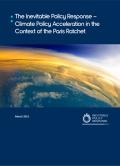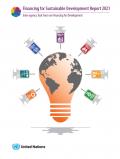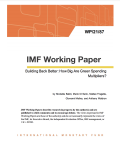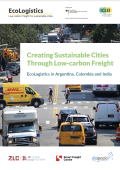
Following the US Presidential election and the Net Zero China 2060 target in particular the “inevitability” of policy Response to climate change looks validated. Exactly what, when, and how remains the issue. The PRI has updated the core Policy Forecasts and considered potential accelerations as well as implications for Investors. As net-zero commitments accelerate across the globe, the new IPR 2021 Policy Forecasts outline the policies that are expected to be deployed by 2025 to begin meeting those targets. It offers markets the crucial next layer of detail on when, where, and how these commitments will start to shift the macroeconomic context through forceful policy implementation across a range of key policy levers.

The 2021 Financing for Sustainable Development Report (FSDR) of the Inter-agency Task Force on Financing for Development warns that COVID-19 could lead to a lost decade for development. The report highlights the risk of a sharply diverging world in the near term where the gaps between rich and poor widen because some countries lack the necessary financial resources to combat the COVID-19 crisis and its socioeconomic impact. Short-term risks are compounded by growing systemic risks that threaten to further derail progress, such as climate change. The report recommends immediate actions to prevent this scenario and put forward solutions to mobilize investments in people and in infrastructure to rebuild better. It also lay outs reforms for the global financial and policy architecture to ensure that it is supportive of a sustainable and resilient recovery and aligned with the 2030 Agenda.
This report presents the first systematic analysis of significant emitters and examines the robustness of net zero pledges as well as their scope. It further looks for entities have components of a credible plan in place, such as interim targets, a reporting mechanism and clarity on use of offsets. This report does not assess whether such plans are internally coherent nor compatible with a global trajectory to the 1.5°C Paris Agreement target.

This working paper estimates multipliers for spending in clean energy and biodiversity conservation to help inform stimulus measures for a post-COVID-19 sustainable recovery.

The purpose of this report is to review existing urban freight movement characteristics across the nine EcoLogistics project cities in Argentina, Colombia and India, provide an account of baseline GHG emissions (2019) from urban freight and identify possible interventions to minimise its negative impacts.
